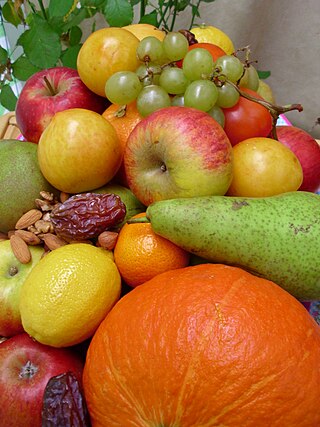
Fruitarianism is a diet that consists primarily of consuming fruits and possibly nuts and seeds, but without any animal products. Fruitarian diets are subject to criticism and health concerns.

The earliest records of vegetarianism as a concept and practice amongst a significant number of people are from ancient India, especially among the Hindus and Jains. Later records indicate that small groups within the ancient Greek civilizations in southern Italy and Greece also adopted some dietary habits similar to vegetarianism. In both instances, the diet was closely connected with the idea of nonviolence toward animals, and was promoted by religious groups and philosophers.
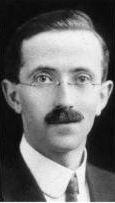
Douglas Macmillan MBE was a British civil servant, vegetarianism activist and founder of the Macmillan Cancer Support charity, now one of the largest charities in the UK.

Howard Williams was an English humanitarianism and vegetarianism activist, and writer. He was noted for authoring The Ethics of Diet, a history of vegetarianism, which was influential on the Victorian vegetarian movement.
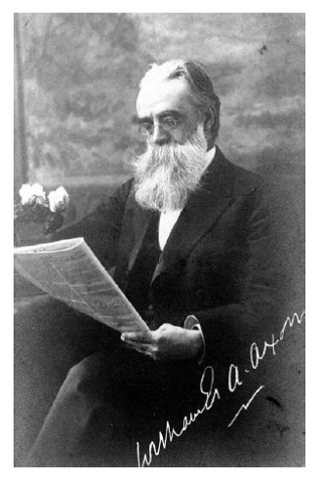
William Edward Armytage Axon was an English librarian, antiquary and journalist for the Manchester Guardian. He contributed to the Dictionary of National Biography under his initials W. E. A. A. He was also a notable vegetarianism activist.
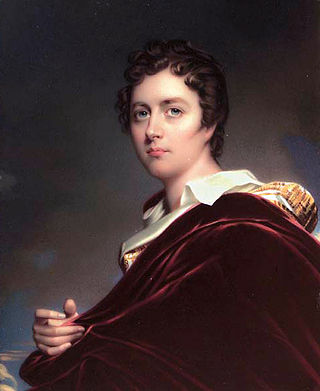
Vegetarianism in the Romantic Era refers to the rise of vegetarianism associated with the Romanticism movement in Western Europe from the eighteenth to the nineteenth century. Many of the late Romantics argued in favor of a more natural diet which excluded animal flesh for a plethora of reasons including the state of human and animal health, religious beliefs, economy and class division, animal rights, literary influence, as well as from new ideas about anthropology, consumerism, and evolution. The modern vegetarian and vegan movements borrow some of the same principles from the late Romantics to promote the adoption of diets free from animal products.
The Gospel of the Holy Twelve, first serialised in The Lindsey and Lincolnshire Star newspaper between July 30, 1898 and March 10, 1901, presents vegetarian versions of traditional teachings and events described in the canonical New Testament.

A Vindication of Natural Diet is an 1813 book by Percy Bysshe Shelley on vegetarianism and animal rights. It was first written as part of the notes to Queen Mab, which was privately printed in 1813. Later in the same year the essay was separately published as a pamphlet.

Ernest Bell was an English author, publisher and activist for animal rights and welfare, humanitarianism and vegetarianism.
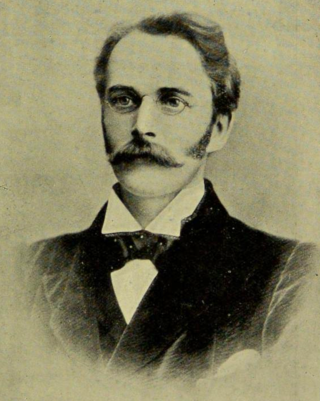
Sidney Hartnoll Beard was an English fruitarian, vegetarian activist and writer. He was President of the international animal rights society, the Order of the Golden Age.

John Howard Moore was an American zoologist, philosopher, educator, humanitarian and socialist. He is considered to be an early, yet neglected, proponent of animal rights and ethical vegetarianism, and was a leading figure in the American humanitarian movement. Moore was a prolific writer, authoring numerous articles, books, essays, pamphlets on topics including animal rights, education, ethics, evolutionary biology, humanitarianism, socialism, temperance, utilitarianism and vegetarianism. He also lectured on many of these subjects and was widely regarded as a talented orator, earning the name the "silver tongue of Kansas" for his lectures on prohibition.

Charles Walter Forward was a British animal rights and vegetarianism activist and historian of vegetarianism.

Josiah Oldfield was an English lawyer, physician and promoter of his own variant of fruitarianism which was virtually indistinguishable from lacto-ovo vegetarianism. He became a versatile author, a prolific writer of popular books on dietary and health topics.

Henry John Williams was an English Anglican priest and activist for humanitarianism, animal rights and vegetarianism. He was the founder of the Order of the Golden Age; an international animal rights society.
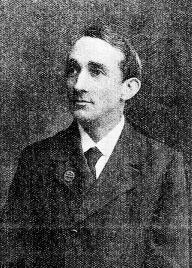
Henry Brown Amos was a Scottish animal rights and vegetarianism activist, and humanitarian.

Henry Stephen Clubb was a British-American Swedenborgian, abolitionist, chartist, journalist and author, who was state senator for Michigan and founder and first President of the Vegetarian Society of America (VSA).

Cornelius Prout Newcombe was an English vegetarianism and temperance activist, and a schoolmaster. He was also an early proponent of veganism.

Bertrand Peter Allinson was a British physician, naturopath and vegetarianism activist.
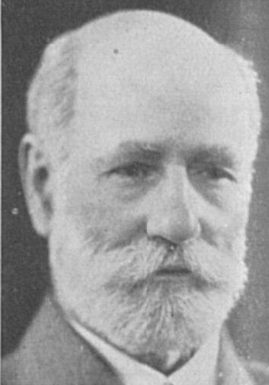
Joseph Stenson Hooker (1853–1946) L.R.C.P., L.R.C.S. was a British physician, naturopath, vegetarianism activist and writer.

Robert Bell was an English physician who specialised in gynaecology and oncology and was vice-president of the International Cancer Research Society. He was also a naturopath and medical writer who published several books on cancer and other diseases. Bell was an advocate for alternative cancer treatments, including vegetarianism. His promotion of such treatments led to the oncologist Ernest Francis Bashford accusing him of quackery in the British Medical Journal; Bell successfully sued Bashford and the journal for libel.



















